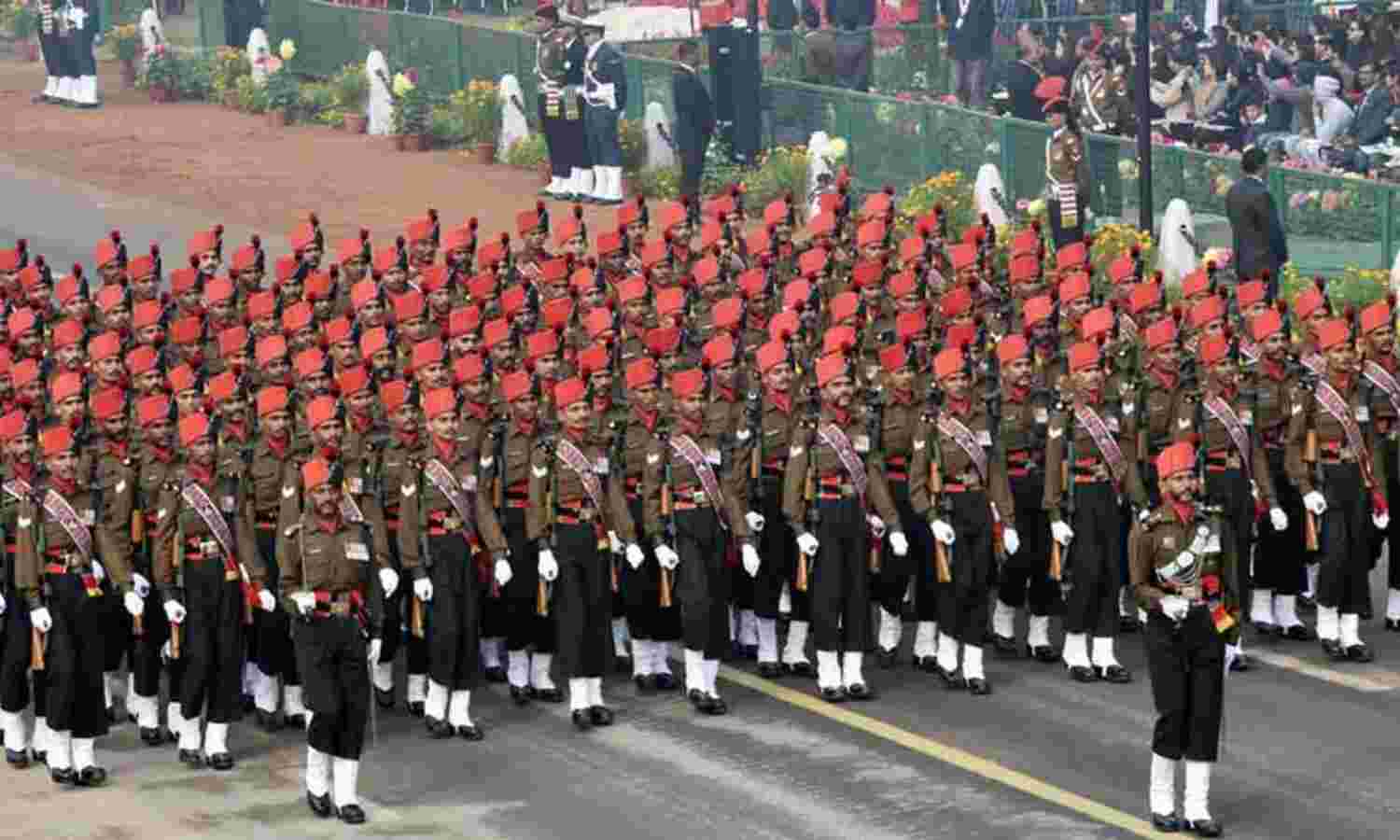Indians Trust The Military The Most, Govt. Officials, Political Parties The Least

Mumbai: In India, the army enjoys the highest level of “effective trust”, followed by the supreme court (SC) and the high courts (HC), according to a 2018 study. Political parties were at the bottom in a list of 16 elected and non-elected institutions and offices.
The study, covering eight states by Azim Premji University (APU) and Lokniti (Centre for the Study of Developing Societies [CSDS]), defines effective trust as the difference between percentage of respondents who opted for a “great deal of trust” at one end of the scale and “no trust at all” at the other.
The study, accessed by IndiaSpend, was conducted in 22 assembly constituencies with 16,680 respondents. Nearly 77% respondents showed the most trust in the military, followed by 54.8% in the SC and 48% in the HCs.
On average, elected offices and institutions such as the president, prime minister, chief minister, parliament, vidhan sabha (state legislature) and panchayat/municipal corporation (MC) enjoyed an “effective trust” of 40%.
But there are wide variations within these categories across the eight states.
All states do not concur
Maharashtra showed high levels of trust, over 60%, in elected institutions--parliament, vidhan sabha, panchayat/MC--while Andhra Pradesh (AP) showed least level of trust, with parliament and vidhan sabha garnering -4% and -2% of “effective trust”, as per the report.
“We also find that both rural and urban local level elected officials play increasingly important roles in providing services to their constituency and this likely influences citizens’ public opinion relating to elected officials,” Siddharth Swaminathan, co-author of the study and a faculty at APU, told IndiaSpend.
Maharashtra showed nearly 53 percentage points more trust in elected offices and institutions than AP. Jharkhand (52.5%) and Chhattisgarh (49.5%) followed Maharashtra in the rankings.
People have sub-zero levels of trust in political parties
Political parties garnered low trust, at -1.75%. With the exception of Maharashtra polling the highest trust at 31%, the other seven states either polled single digit or negative percentage trust. Political parties polled the lowest in the list of 16.
About 73% Indians have shown confidence in their government in 2016 as against 30% Americans, according to Government At A Glance 2017, a report by the Organisation for Economic Co-operation and Development, IndiaSpend reported on July 14, 2017. The confidence level in government has actually declined from 82% in 2007.
The average “effective trust” in parliament was 36.6% in the eight states surveyed. A similar study by CSDS conducted in 2013 indicated that 56% people trust the parliament in varying degrees; this was 43% in 2005, FirstPost reported on October 6, 2015.
Courts trusted, but less so now than before
The study found significant trust in the judiciary. It observed a steady decline in average trust levels in the SC to HCs to district courts across all states, except AP where 28% stated trust in the district courts. The SC and HCs enjoyed 21% and 20% trust, respectively, in AP.
In the other seven states, the SC and HCs enjoyed an average “effective trust” of 60% and 52%, respectively.
Of the top five institutions that enjoy high levels of trust, four operate at a distance from citizens, the study said.
"An obvious reason for differences in trust between institutions closer to citizens compared to distant ones is that citizens have routine interactions with institutions that are closer [district courts, the police, government officials],” said Swaminathan.
Additionally, there could also be spillover effects--citizens who trust one set of institutions are more likely to trust another set related to it. This may have very little to do with specific policy output, said Swaminathan.
The office of the district collector, one who is more likely to be approached or connected with the issues of everyday citizenship, is the only outlier. She/he garnered 47% “effective trust”, coming fourth in the list after HCs.
Maharashtra polled the highest at 69%, 45 percentage points more than AP.
Govt officials and police rank only above political parties
Police and government officials rank only above political parties in the list.
Government officials (collector and tehsildar have been listed separately) scored 4.8% trust while the police manage only 0.9 percentage points more. This can be attributed to the politicisation of these spheres, the lack of transparency in their functioning, and corruption in the last decades, according to the report.
As many as 1,629 cases of corruption were reported in India--in which 9,960 people were involved or 11 every day--under the Prevention of Corruption Act, 1988, over two-and-half years ending June 30, 2017, IndiaSpend reported on October 30, 2017. India was ranked 79 of 176 countries, scoring 40 on the “Corruption Perception Index 2016” released in January 2017, by Transparency International, a global advocacy on corruption.
Media can also influence public opinion about institutions, said Swaminathan. Certain institutions such as the election commission are more likely to be favourably covered than say, the police, he pointed out.
The number of senior government officials involved in public corruption cases investigated by state agencies has increased 95% over the past five years, said this 2015 IndiaSpend report.
(Paliath is an analyst with IndiaSpend.)
We welcome feedback. Please write to respond@indiaspend.org. We reserve the right to edit responses for language and grammar.
__________________________________________________________________“Liked this story? Indiaspend.org is a non-profit, and we depend on readers like you to drive our public-interest journalism efforts. Donate Rs 500; Rs 1,000, Rs 2,000.”


